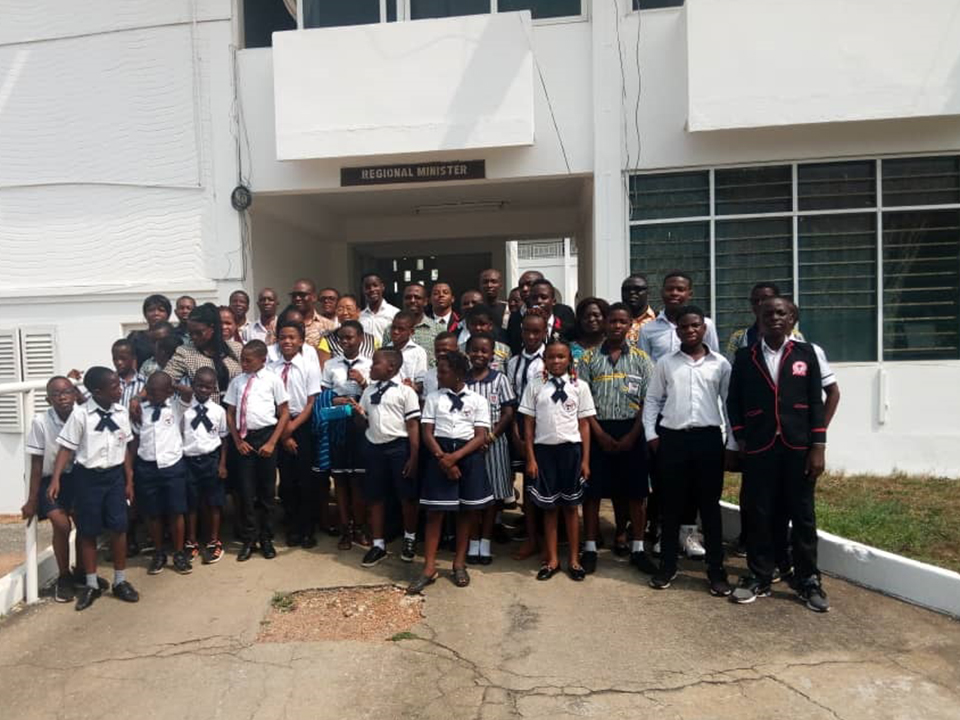The Vice-Chancellor, Prof. Joseph Ghartey Ampiah, has met a team from Nevada State, United States of America to find areas of possible collaboration between the University and the state of Nevada.
The Nevada team which was made up of seven officials from the University of Nevada was led by the Deputy Director of Economic Development, Nevada Governor’s Office, Derek Armstrong. Other members were Dr. Mary Croughan, Dr. Mridul Gautam, Dr. Robert Goldberg, Seema Gautam, Dr. Bo Bernhard, Carina Black and Bill Payne.
Present with the Vice-Chancellor were the Registrar, Mr. John Kofi Nyan, and Provosts of the five colleges of the University, comprising Prof. Dora Edu-Buandoh of the College of Humanities and Legal Studies, Prof. Isaac Galyuon, College of Distance Education, Prof. Eric Wilmot, College of Education Studies, Prof. Johnson N. Boampong, College of Health and Allied Sciences and Prof. L. K. Sam-Amoah, College of Agriculture and Natural Sciences.
Others were the Dean of the Faculty of Social Sciences, Prof. Eric Amuquandoh, Dean, School of Agriculture, Prof. Elvis Asare-Bediako and the Deputy Director of Finance, Mr. Francis Obeng.
The Provosts and Deans took turns to brief the team on programmes and ongoing research activities of their respective colleges and faculties and answered questions posed them by the US team.
Derek Armstrong said the team was interested in capacity building, learning best practices that would help them develop their programmes, research collaboration and student/faculty exchange. He noted that they were also interested to learn about research and innovation initiatives, technology incubation projects and commercialization of technology. He indicated the team’s interest in building a positive relationship with their UCC counterparts.
The Vice-Chancellor said there were several opportunities both sides could take advantage of to the benefit of their respective constituents adding that “there are real potentials for collaboration to pursue”.
Prof. Ampiah explained that most of the important issues of concern to the University were at the micro level and there was the need to concretize them during the working sessions.
Prof. Ampiah was optimistic that the sessions could fashion out programmes on research, graduate assistantship to benefit both sides. One area, he pointed out for consideration was global tourism and called on both parties to explore this area together. “Central Region and for that matter Cape Coast, has a lot of tourism potential and by associating with Nevada, UCC can develop the area”. He called for the development and signing of a Memorandum of Understanding to concretise the discussions and see the way forward.
The meeting was facilitated by the Directorate of Research, Innovation and Consultancy (DRIC) led by the Director, Prof. Samuel Annim.


